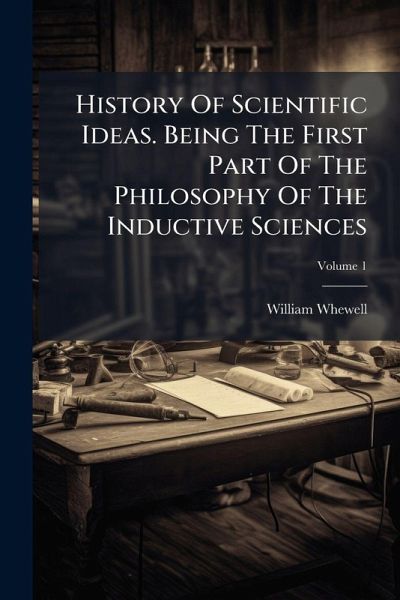
History Of Scientific Ideas. Being The First Part Of The Philosophy Of The Inductive Sciences

PAYBACK Punkte
13 °P sammeln!
"History Of Scientific Ideas, Volume 1" by William Whewell delves into the historical development of scientific thought, forming the initial part of his broader philosophical examination of the inductive sciences. Whewell meticulously traces the evolution of key scientific concepts and methodologies, offering readers a comprehensive understanding of the foundations upon which modern science is built. This volume serves as an invaluable resource for historians of science, philosophers, and anyone interested in the intellectual journey of humankind's quest to understand the natural world. Whewel...
"History Of Scientific Ideas, Volume 1" by William Whewell delves into the historical development of scientific thought, forming the initial part of his broader philosophical examination of the inductive sciences. Whewell meticulously traces the evolution of key scientific concepts and methodologies, offering readers a comprehensive understanding of the foundations upon which modern science is built. This volume serves as an invaluable resource for historians of science, philosophers, and anyone interested in the intellectual journey of humankind's quest to understand the natural world. Whewell's detailed analysis provides context and insight into the ongoing debates and advancements that have shaped our scientific knowledge. Explore the origins of scientific inquiry and the brilliant minds that propelled its progress. This work has been selected by scholars as being culturally important, and is part of the knowledge base of civilization as we know it. This work was reproduced from the original artifact, and remains as true to the original work as possible. Therefore, you will see the original copyright references, library stamps (as most of these works have been housed in our most important libraries around the world), and other notations in the work. This work is in the public domain in the United States of America, and possibly other nations. Within the United States, you may freely copy and distribute this work, as no entity (individual or corporate) has a copyright on the body of the work. As a reproduction of a historical artifact, this work may contain missing or blurred pages, poor pictures, errant marks, etc. Scholars believe, and we concur, that this work is important enough to be preserved, reproduced, and made generally available to the public. We appreciate your support of the preservation process, and thank you for being an important part of keeping this knowledge alive and relevant.












